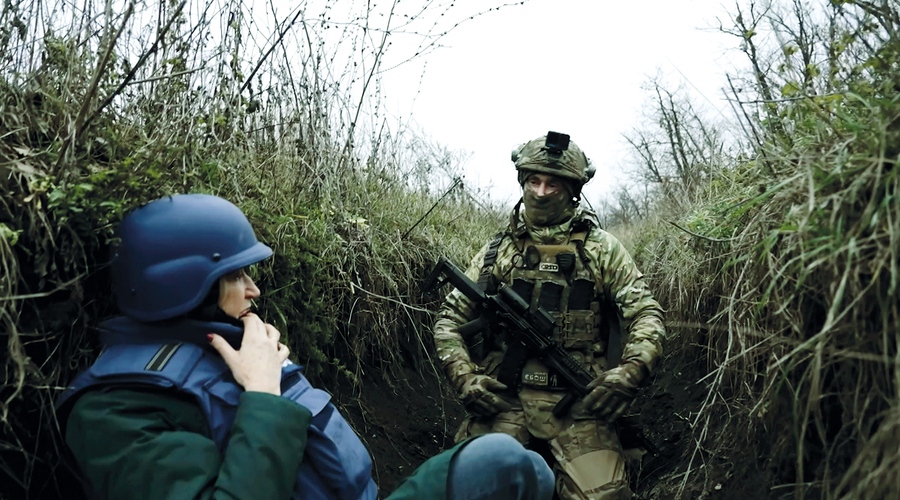Introduction
War reporting is one of the most perilous and significant branches of journalism. From the trenches of World War I to modern-day conflicts in Ukraine and the Middle East, war correspondents risk their lives to bring the truth to the world. Their reports shape public perception, influence political decisions, and provide a voice for the voiceless in war-torn regions. This article explores the realities, dangers, and ethical dilemmas faced by war reporters and their indispensable role in modern journalism.
The Role of a War Reporter
War correspondents serve as the eyes and ears of the world, documenting the horrors of battle, the struggles of civilians, and the strategies of military forces. Their work involves:
- Live Coverage: Reporting directly from conflict zones through news broadcasts and social media updates.
- Investigative Journalism: Uncovering war crimes, human rights abuses, and misinformation.
- Human Interest Stories: Bringing forward personal stories of soldiers, refugees, and affected communities.
- Fact-Checking and Analysis: Countering propaganda by providing verified, unbiased information.
The Dangers of War Reporting
War reporters face extreme risks that make their job one of the most dangerous professions in the world.
- Physical Danger: Journalists operate in active war zones, where they face bombings, gunfire, and landmines.
- Kidnappings and Hostage Situations: Terrorist organizations and militant groups often target journalists.
- Censorship and Government Crackdowns: Many governments and military organizations attempt to suppress or manipulate war coverage.
- Psychological Trauma: Witnessing death and destruction takes a severe emotional toll, often leading to PTSD.
Iconic War Reporters and Their Impact
Throughout history, war correspondents have changed the course of public opinion and policy through their fearless reporting. Some of the most notable include:
- Ernie Pyle: Covered World War II from the perspective of ordinary soldiers, bringing humanity to the horrors of war.
- Marie Colvin: Known for her fearless coverage of conflicts in Syria, Sri Lanka, and Libya, often at great personal risk.
- Christiane Amanpour: A modern war correspondent who has covered conflicts in the Balkans, Iraq, and Afghanistan with an unwavering commitment to the truth.
- James Foley: An American journalist who was kidnapped and executed by ISIS, highlighting the dangers war reporters face.
Ethical Dilemmas in War Reporting
- Objectivity vs. Emotional Involvement: Should war reporters remain neutral, or is it their duty to advocate for victims?
- Graphic Imagery: How much violence should be shown to the public without causing unnecessary distress or propaganda?
- Government Influence and Embedded Journalism: When journalists are embedded with military units, can they remain unbiased?
- Safety vs. Reporting the Truth: When should a journalist prioritize personal safety over getting the story out?
The Evolution of War Journalism
War reporting has evolved significantly, thanks to advancements in technology and changes in global media landscapes:
- Live Streaming and Citizen Journalism: Smartphones and social media allow civilians to report directly from conflict zones, sometimes bypassing traditional media.
- Drones and Satellite Imaging: Technology enables journalists to capture battlefield footage without direct exposure to danger.
- Digital Misinformation Battles: Modern conflicts are fought not just on the ground but also in cyberspace, where propaganda spreads rapidly.
The Future of War Reporting
As war reporting becomes increasingly complex, the role of journalists remains as crucial as ever. The future may see:
- AI-Assisted Reporting: Machine learning tools analyzing conflict data for more comprehensive war coverage.
- Enhanced Protective Gear and Safety Protocols: New technologies improving journalist safety in war zones.
- Stronger International Protections: Greater efforts to protect journalists under international law.
Conclusion
War reporters are among the most courageous journalists, risking their lives to uncover the truth in the world’s most dangerous conflicts. Their work not only informs the public but also holds those in power accountable for their actions. As technology evolves and conflicts become more complex, war reporting will continue to adapt, but its fundamental mission—bringing the reality of war to the world—will remain unchanged.

